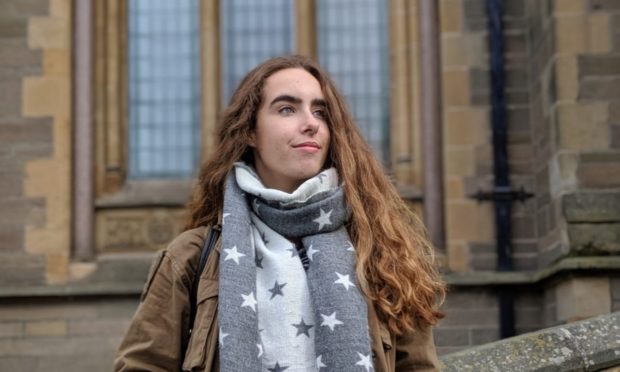A Dundee graduate has received international recognition for studies into the “lock and key” secrets of Covid-19 during the height of the pandemic.
In a rare achievement for an undergraduate, Conchita Fraguas Bringas has had her research into SARS-CoV-2 published in the journal Access Microbiology after investigating the way the deadly virus breaches the body’s immune system.
The 22-year-old’s computer-based bioinformatics project was undertaken while under strict lockdown in Spain and as she was completing the final exams of her biological sciences degree.
Conchita worked with her advisor of studies, Dr David Booth , a senior lecturer in the Dundee University’s School of Life Sciences, to complete the paper.
The project focused on a protein named the Spike, which acts as a ‘key’ that can be recognised by the body’s immune system and is currently a focus for vaccine design through the important role it plays in Covid-19 transmission.
The Dundee research used computer programmes to observe the ‘lock and key’ mechanism which allows the virus into human cells.
Conchita, who graduated this year with first class honours in Biological Sciences and is starting her PhD at the University of Copenhagen hopes the research will be explored further with laboratory study.
“Since the first reports of the novel coronavirus I started researching the latest scientific literature in my own time.
“In March, I flew back home to be with my family and spent two months in one of the harshest worldwide lockdowns, where the Spanish population suffered a great loss and had leading number of cases at the time.
“During this time, I kept researching whilst preparing for my final degree exams, and I felt that if I had the chance to help out in any way, I would try to do so.
“I eventually drafted a manuscript and, with the help and support of Dr Booth, prepared the submission.”
She added: “My time at Dundee has allowed me to grow both as a person and a scientist and acquire the skills needed to navigate the scientific field. From early on I was exposed to great resources and shown how to use them, or given the opportunity to do extra-learning that went beyond the classroom.”
Dr Booth said: “To have a young scientist contribute to the body of knowledge with a timely and contemporary piece of work in this way, whilst also experiencing the review process, is a fantastic thing.”










